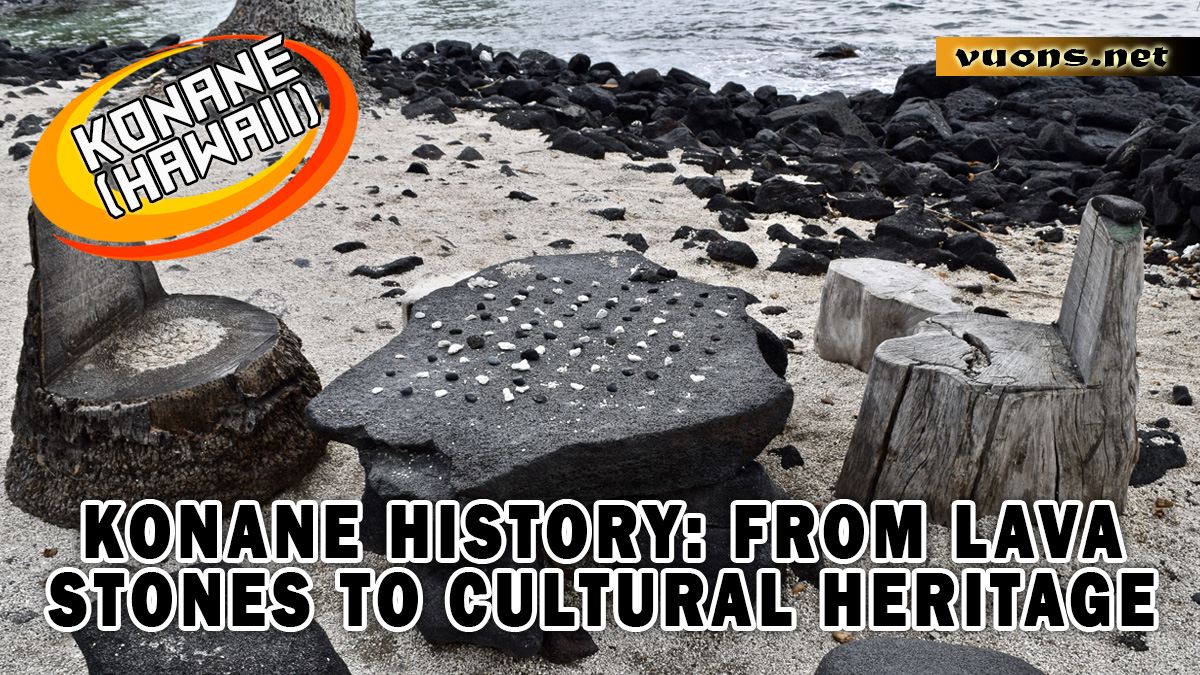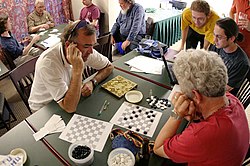Konane, Traditional Hawaiian Island Game
Konane History: A Cultural Heritage from Ancient Times
Konane, Traditional Hawaiian Island Game – Konane History: A Cultural Heritage from Ancient Times reflects the rich traditions of the Hawaiian people. This Game has existed since before the arrival of Westerners, played by nobles and common people as a form of entertainment and strategy training. Konane boards are usually made of lava rocks with small holes, while the pieces use black and white stones arranged alternately.
The rules of the Konane game are simple but require deep strategy. Players must jump over opponent pieces vertically or horizontally to remove them from the board. The main goal is to block the opponent’s moves until they can no longer move. With these rules, Konane is often referred to as a reflection of strategy in everyday life.
This game also has deep philosophical values. Hawaiians believe that Konane teaches the importance of planning, patience, and the ability to read situations. Not only as a means of entertainment, Konane is also used in tactical thinking training, and is even considered to reflect the way native Hawaiians face challenges in their lives.
To this day, Konane is still played at various cultural events in Hawaii. This game is a symbol of cultural heritage that connects the modern generation with their ancestors.
Boards and Pieces: Unique Game Tools
Boards and Pieces: Unique Game Tools in Konane are one of the attractions of this traditional game. Konane boards are usually made of lava rock, reflecting the Hawaiian people’s relationship with nature. The board is carved with small holes in a regular pattern, forming a distinctive playing area.
The pieces use small stones in two different colors, black and white. Black stones often come from basalt, while white stones are usually taken from coral or other natural materials. This contrasting combination of black and white creates an interesting visual appearance and makes it easier for players to recognize the position of each piece.
The process of making the board and pieces is not only a practical activity but also part of Hawaiian culture. Many Konane boards are made with high skill, sometimes decorated with carvings that have symbolic meaning. This shows that this game is not just entertainment, but also a representation of the art and traditions of the Hawaiian people.
Konane boards and pieces are often carefully stored as valuable items. They symbolize the relationship between humans and nature and the importance of preserving cultural values. Even today, Konane boards are often displayed as artifacts in museums as part of Hawaiian history.
The Philosophical Meaning Behind Konane Strategy
The Philosophical Meaning Behind Konane Strategy lies in the values taught through each step in the game. Konane is not just entertainment, but a reflection of the Hawaiian way of thinking about life. The game teaches the importance of planning, patience, and the ability to read situations deeply.
In Konane, every step taken has consequences, reflecting how decisions in real life must be made carefully. Players must think ahead, not only to win the game, but also to anticipate the opponent’s moves. This philosophy illustrates the importance of strategic thinking in facing everyday challenges.
The game also teaches about balance. With opposing black and white pieces, Konane reflects the duality of life: light and dark, winning and losing. This reminds players to accept every outcome with an open heart, while also finding ways to continue moving forward.
Apart from that, Konane is also a means to strengthen social relationships. The game is usually played with family or friends, creating a space to share stories, learn, and respect each other. In this way, Konane is not only a strategy game, but also a tool for strengthening community ties.
Konane: More Than Just a Fun Game
Konane: More Than Just a Fun Game, is an important part of Hawaiian culture. This game not only serves as a means of entertainment, but also reflects deep traditional values. Known as a strategy game, Konane teaches tactical thinking skills and careful decision-making.
Historically, Konane was often played by Hawaiian nobles to practice strategic thinking skills. This game was also used as a symbol of honor in competitions or as a means of recreation among ordinary people. The philosophy contained in it involves the concepts of balance, harmony, and sustainability.
Konane boards made of lava rock and black and white stone pieces reflect the close relationship of the Hawaiian people with nature. This combination is not only aesthetic, but also shows the balance of the dualities of life, such as light and dark or victory and defeat.
Furthermore, Konane has a strong social dimension. This game is often played at family or community events, creating moments of togetherness and strengthening relationships between generations. This makes Konane an important medium for preserving Hawaiian culture and traditions.
In the modern era, Konane continues to be taught as part of the Hawaiian cultural curriculum. This game not only introduces traditional values to the younger generation, but also becomes a symbol of pride in cultural identity that continues to be maintained to this day.




